Table of Contents
ANTONIO CARLOS “TOM” JOBIM – TRISTE (Guitar arr. TAB SHEET MUSIC, partitura)
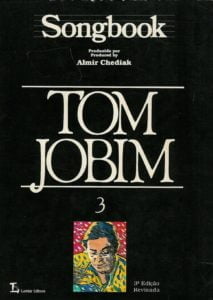
Lyrics:
Triste é viver na solidão
Na dor cruel de uma paixão
Triste é saber que ninguém
Pode viver de ilusão
Que nunca vai ser nunca vai dar
O sonhador tem que acordar
Tua beleza é um avião
Demais p’rum pobre coração
Que pára pra te ver passar
Só pra me maltratar
Triste é viver na solidão
Best Sheet Music download from our Library.
‘Triste’ (meaning ‘Sad’ in English) is a bossa nova song composed in 1966 by Antônio Carlos Jobim, who also wrote the lyrics in English and Portuguese.
Background
Jobim wrote the song in late 1966 while staying at the Sunset Marquis Hotel in Los Angeles, while waiting for Frank Sinatra to return from a vacation in Barbados to begin recording his album Francis Albert Sinatra & Antônio Carlos Jobim (1967).
The first recording of the song was an instrumental version by Jobim for his 1967 Wave album. Sinatra recorded it with Jobim two years later in the sessions for his planned second album, SinatraJobim, which was eventually released as Sinatra & Company’s Side A (1971).
Jobim recorded an English vocal version in 1980 on the album Terra Brasilis.
Antonio Carlos Jobim
Antônio Carlos Brasileiro de Almeida Jobim (January 25, 1927 – December 8, 1994), also known as Tom Jobim was a Brazilian composer, pianist, composer, arranger, and singer. Considered one of the great exponents of Brazilian music, Jobim internationalized bossa nova and, with the help of leading American artists, fused it with jazz in the 1960s to create a new sound with popular success. As such, he is sometimes referred to as the ‘father of bossa nova’.
Jobim was a major force behind the creation of the bossa nova style, and his songs have been performed by many singers and instrumentalists internationally.
Please, subscribe to our Library.
If you are already a subscriber, please, check our NEW SCORES’ page every month for new sheet music. THANK YOU!
In 1965, the Getz/Gilberto album was the first jazz record to win the Grammy Award for Album of the Year. It also won for Best Jazz Instrumental Album – Individual or Group and for Best Engineered Album, Non-Classical. The album’s single ‘Garota de Ipanema’ (‘The Girl from Ipanema’), one of the most recorded songs of all time, won Record of the Year.
Jobim composed many songs that are now included in the standard jazz and pop repertoires. The song ‘Garota de Ipanema’ has been recorded more than 240 times by other artists.
His 1967 album with Frank Sinatra, Francis Albert Sinatra and Antônio Carlos Jobim, was nominated for Album of the Year in 1968.
Antônio Carlos Jobim was born in the middle-class district of Tijuca in Rio de Janeiro. His father, Jorge de Oliveira Jobim (São Gabriel, Rio Grande do Sul; 1889-1935), was a writer, diplomat, teacher and journalist.
He came from a prominent family, being the great-nephew of José Martins da Cruz Jobim, a senator, private councilor, and physician to Emperor Dom Pedro II. While studying medicine in Europe, José Martins added Jobim to his surname, paying homage to the town his family came from in Portugal, the parish of Santa Cruz de Jovim, Porto.
His mother, Nilza Brasileiro de Almeida (c. 1910-1989), was of partially indigenous descent from northeastern Brazil.
When Antônio was still a baby, his parents separated and his mother moved with her children (Antônio Carlos and his sister Helena Isaura, born February 23, 1931) to Ipanema, the beachside neighborhood that the composer would later would celebrate in their songs.
In 1935, when Jobim’s elder died, Nilza married Celso da Frota Pessoa (died February 2, 1979), who would encourage the career of her stepson. It was he who gave Jobim his first piano. As a young man of impoverished youth, Jobim made a living playing in nightclubs and bars and later as an arranger for a record label before beginning to achieve success as a songwriter.
Musical influences
Jobim’s musical roots were planted firmly in the work of Pixinguinha, the legendary musician and composer who pioneered modern Brazilian music in the 1930s. His teachers included Lúcia Branco and, beginning in 1941, Hans-Joachim Koellreutter, a German composer who lived in Brazil and introduced atonal and twelve-tone composition in the country.
Jobim was also influenced by French composers Claude Debussy and Maurice Ravel, and by Brazilian composers Ary Barroso and Heitor Villa-Lobos, who has been described as ‘Jobim’s most important musical influence’.
Among many topics, his lyrics talked about love, self-discovery, betrayal, joy, and especially about birds and the natural wonders of Brazil, such as the ‘Mata Atlântica’ forest, characters from Brazilian folklore, and his native city of Rio de Janeiro.
In the 1940s, Tom Jobim began playing the piano in bars and nightclubs in Rio de Janeiro, and in the early 1950s, he worked as an arranger at the Continental Studio, where he recorded his first composition, in April 1953, when Brazilian singer Mauricy Moura recorded Incerteza, a Tom Jobim composition with lyrics by Newton Mendonça.
Jobim rose to prominence in Brazil when he teamed up with poet and diplomat Vinicius de Moraes to write the music for the play Orfeu da Conceição (1956).
The most popular song on the show was ‘Se Todos Fossem Iguais A Você’ (‘If Everyone Were Like You’). Later, when the play was adapted into a film, producer Sacha Gordine did not want to use the play’s existing music. Gordine asked De Moraes and Jobim for a new score for the film Orfeu Negro, or Black Orpheus (1959). Moraes was at the time in Montevideo, Uruguay, working for the Itamaraty (the Brazilian Ministry of Foreign Affairs), so Jobim and he were only able to write three songs, mainly by phone (‘A felize’, ‘Frevo’ and ‘Frevo’). Or nosso love ‘).
This collaboration proved successful, and de Moraes went on to write the lyrics for some of Jobim’s most popular songs.
In 1958, the Brazilian singer and guitarist João Gilberto recorded his first album with two of Tom Jobim’s most famous songs: Desafinado and Chega de Saudade. This album inaugurates the Bossa Nova movement in Brazil. The sophisticated harmonies of his songs caught the attention of jazz musicians in the United States, mainly after Tom Jobim’s first performance at Carnegie Hall in 1962.
A key event in making Jobim’s music known in the English-speaking world was his collaboration with American jazz saxophonist Stan Getz, Brazilian singer João Gilberto, and Gilberto’s wife at the time, Astrud Gilberto, resulting in two albums, Getz/Gilberto. (1963) and Getz/Gilberto Vol. 2 (1964).
The release of Getz/Gilberto created a bossa nova craze in the United States and later internationally. Getz had previously recorded Jazz Samba with Charlie Byrd (1962) and Jazz Samba Encore! with Luiz Bonfa (1964). Jobim wrote many of the songs on Getz/Gilberto, which became one of the best-selling jazz albums of all time, and turned Astrud Gilberto, who sang on ‘Garota de Ipanema’ (The Girl from Ipanema) and ‘ Corcovado’, into an international sensation.
At the 1965 Grammy Awards, Getz/Gilberto won the Grammy Award for Album of the Year, the Grammy Award for Best Jazz Instrumental Album, Individual or Group, and the Grammy Award for Best Non-Classical Engineered Album. ‘The Girl from Ipanema’ won the Grammy Award for Record of the Year. Among his later successes is ‘Águas de Março’ (Waters of March 1972), for which he wrote lyrics in both Portuguese and English, and which was later translated into French by Georges Moustaki (Les Eaux de Mars, 1973 ).
In early 1994, after finishing his Antonio Brasileiro album, Jobim complained to his doctor, Roberto Hugo Costa Lima, of urinary problems. He underwent surgery at Mount Sinai Hospital in New York City on December 2, 1994.
On December 8, while recovering from an operation, he suffered a cardiac arrest caused by a pulmonary embolism and two hours later, another cardiac arrest, from which he died. .
He was survived by his children and grandchildren. His last album, Antonio Brasileiro, was released posthumously three days after his death.
His body remained in state until he was duly buried on December 20, 1994. He is buried at the Cemitério São João Batista in Rio de Janeiro.
Jobim’s Legacy
Jobim is widely considered to be one of the most important composers of the 20th century. Many of his songs are jazz standards.
American jazz singers Ella Fitzgerald and Frank Sinatra featured Jobim’s songs on their albums Ella Abraça Jobim (1981) and Francis Albert Sinatra & Antônio Carlos Jobim (1967), respectively. The 1996 CD Wave: Antonio Carlos Jobim’s Songbook included performances of Jobim themes by Oscar Peterson, Herbie Hancock, Chick Corea, and Toots Thielemans.
Jobim was an innovator in the use of sophisticated harmonic structures in popular songs. Some of his melodic turns, like the melody that he insists on the major seventh of the chord, became common in jazz after he used them.
Brazilian collaborators and performers of Jobim’s music include Vinicius de Moraes, João Gilberto (often credited as co-creator or creator of bossa nova), Chico Buarque, Edu Lobo, Gal Costa, Elis Regina, Sérgio Mendes, Astrud Gilberto and Flora Purim, Eumir Deodato and conductor/composer Claus Ogerman arranged many recordings of Jobim’s tunes.
He won a Lifetime Achievement Award at the 54th Grammy Awards in 2012. As a posthumous tribute, on January 5, 1999, the Municipality of Rio de Janeiro changed the name of Rio’s Galeão International Airport, located on Governador Island, to bear the name of the composer. Galeão airport is explicitly mentioned in his composition ‘Samba do Avião’. In 2014, Jobim was posthumously inducted into the Latin Songwriters Hall of Fame.
In 2015, Billboard named Jobim one of the 30 most influential Latin artists of all time. [twenty-one]
American contemporary jazz singer Michael Franks dedicated his 1995 album Abandoned Garden to Jobim’s memory. English singer-songwriter George Michael frequently acknowledged Jobim’s influence. His 1996 album Older was dedicated to Jobim, and he recorded ‘Desafinado’ on Red Hot + Rio (1996) with Astrud Gilberto.
The official mascot of the 2016 Summer Paralympics in Rio de Janeiro, Tom, was named after him.
Discography and compositions
| Studio Albums: 1963: El compositor de Desafinado, juega ( Verve )1965: El maravilloso mundo de Antônio Carlos Jobim ( Warner Bros. Records )1966: Amor, cuerdas y Jobim ( Warner Bros. Records )1967: Un cierto señor Jobim ( Warner Bros. Records )1967: Ola ( CTI / A&M )1970: Marea (A&M)1970: Flor de piedra (CTI)1973: Jobim ( MCA )1976: Urubu (Warner Bros.)1980: Terra Brasilis (Warner Bros.)1987: Passarim (Verve)1995: Antônio Brasileiro ( Colombia )1995: Inédito ( Ariola )1997: Minha Alma Canta (Lumiar) |
Cooperations:
- 1954: Sinfonia do Rio de Janeiro (Continental), con Billy Blanco
- 1956: Orfeu da Conceição (Odeón), con Vinicius de Moraes
- 1957: “O Pequeno Príncipe” (Festa), audiolibro del que Jobim compuso la banda sonora
- 1961: Brasilia – Sinfonia Da Alvorada (Colombia), con Vinicius de Moraes
- 1964: Getz / Gilberto (Verve)
- 1964: Caymmi Visita Tom (Elenco / Polygram / Philips ), con Dorival Caymmi
- 1967: Francis Albert Sinatra y Antônio Carlos Jobim (Reprise)
- 1974: Elis & Tom ( Philips ), con Elis Regina
- 1977: Miúcha & Antônio Carlos Jobim ( RCA ), con Miúcha
- 1979: Miúcha & Tom Jobim ( RCA ), con Miúcha
- 1981: Edu & Tom ( Philips ), con Edu Lobo
- 1983: Gabriela ( RCA ), banda sonora original de la película “Gabriela, Cravo e Canela”
Browse in the Library:
| Artist or Composer / Score name | Cover | List of Contents |
|---|---|---|
| All Sondheim Vol IV Music and lyrics |
 |
All Sondheim Vol IV Music and lyrics |
| All That Jazz piano-vocal Arrangement |
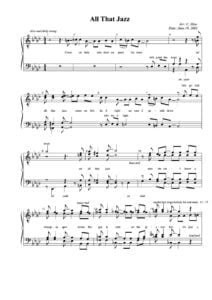 |
|
| All The Things You Are (Guitar And Tabs) | All The Things You Are (Guitar And Tabs) | |
| All The Things You Are (Guitar And Tabs) (Musescore File).mscz | ||
| All The Things You Are By Jerome Kern Guitar Transcription |
 |
|
| All The Things You Are Jerome Kern Oscar Hammerstein 2nd 1940 Jazz Standard (Vintage sheet music) |
 |
|
| All Time Standards (Songbook) Jazz Guitar Tablature Chord Melody Solos (Jeff Arnold) |
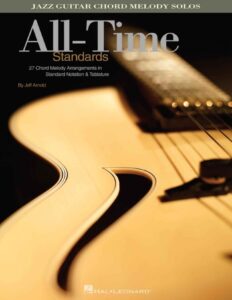 |
All Time Standards (Songbook) Jazz Guitar Tablature Chord Melody Solos (Jeff Arnold) |
| All Time Standards Piano (Arr. Gabriel Bock) |
 |
All Time Standards Piano (Arr. Gabriel Bock) |
| All You Need Is Ears George Martin with Jeremy Hornsby 1979 (Book) The story o the recording genius who created The Beatles |
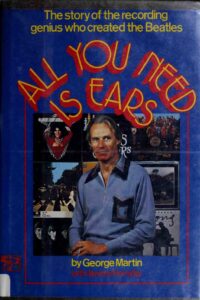 |
|
| Allan Holdsworth Just for the curious book Guitar with Tablature |
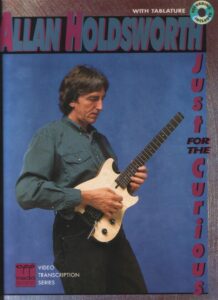 |
|
| Allan Holdsworth Melody Chords For Guitar |
 |
|
| Allan Holdsworth Super Guitarist with TABs |
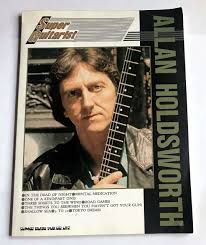 |
Allan Holdsworth Super Guitarist with TABs |
| Alle prese con una verde Milonga (Paolo Conte) | ||
| Allevi, Giovanni – Back To Life |
 |
|
| Allie Wrubel – Gone with the Wind |
 |
|
| Allman Brothers Guitar Songbook |
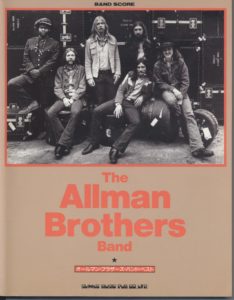 |
Allman Brothers Guitar Songbook |
| Allman Brothers, Best Of The (Piano, Vocal, Guitar) |
 |
Allman Brothers, Best Of The (Piano, Vocal, Guitar) |
| Allman Brothers, The – The Definitive Collection For Guitar Vol 1 with Tablature |
 |
Allman Brothers, The – The Definitive Collection For Guitar Vol 1 |
| Alma Redemptoris Mater |
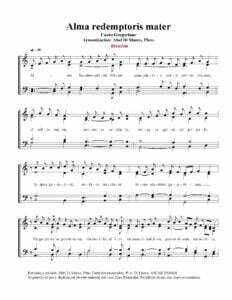 |
|
| Almeno tu nell’universo (Mia Martini) | ||
| Almir Chediak Ivan Lins Guitar Songbook Vol 2 |
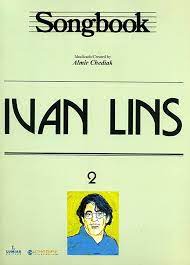 |
Ivan Lins Guitar Songbook Vol 1 by Almir Chediak |
| Alok – Hear Me Now Sheet Music |
 |
|
| Alone together (Howard Dietz & Arthur Schwartz) | Alone together (Howard Dietz Arthur SchwArtz) | |
| Alone Together (Musescore File).mscz | ||
| Alone Togheter Guitar Solo Transcription Jazz Standard |
 |
|
| Alphaville Forever Young (piano & Guitar) |
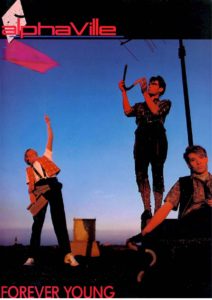 |
Alphaville Forever Young (piano & Guitar) |
| Also Sprach Zarathustra Op. 30 – Richard Strauss (Musescore File).mscz | ||
| Alternative Rock Sheet Music Collection |
 |
Alternative Rock Sheet Music Collection |
| Always on my mind – Elvis Presley – easy arrangement for piano, with fingering |
 |
|
| Amadeus – W.A. Mozart (film score arr. for piano solo by D. Fox) |
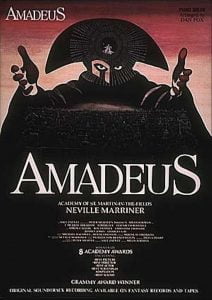 |
Amadeus – W.A.Mozart |
| Amadeus (original soundtrack piano solo arrangements) |
 |
Amadeus (Film score book) Piano Solos |
| Amalia Rodriguez FADOS Melodias De Sempre (GUITAR) |
 |
Amalia Rodriguez FADOS Melodias De Sempre (GUITAR) |
| Amando amando (Renato Zero) | ||
| Amar Pelos Dois (Salvador Sobral) | ||
| Amarcord (Nino Rota) | ||
| Amazing Grace – Tradicional (Piano ) |
 |
|
| Amazing Grace Traditional (Jazzy ver. sheet music) |
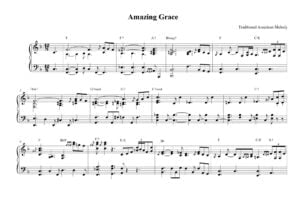 |
|
| Amazing Phrasing – Guitar 50 Ways to Improve Your Improvisational Skills (Guitar TABs Amazing Phrasing) (Tom Kolb) |
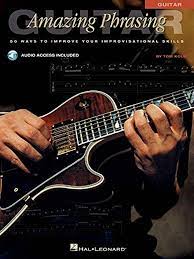 |
Amazing Phrasing – Guitar 50 Ways to Improve Your Improvisational Skills (Guitar TABs Amazing Phrasing) (Tom Kolb) |
| Amelie Poulain – 6 pieces for piano – Yann Tiersen – Yann Tiersen |
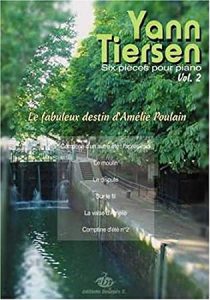 |
 |
| America (My Country ‘Tis of Thee Easy Piano Level 2 |
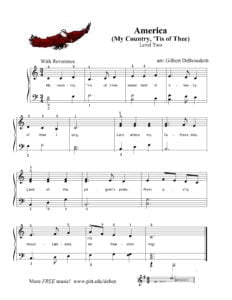 |
|
| America Greatest Hits Piano Vocal Guitar chords |
 |
America Greatest Hits Piano Vocal Guitar chords |
| America Greatest Hits (piano & Guitar) |
 |
America greatest |
| America Horse With No Name Piano vocal | America Horse With No Name Piano vocal | |
| America’s Songs The Stories Behind The Songs Of Broadway, Hollywood, And Tin Pan Alley (Philip Furia, Michael Lasser) Book |
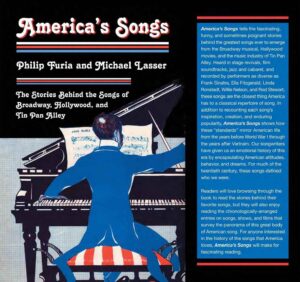 |
|
| American Folk Songs For Guitar with Tablature |
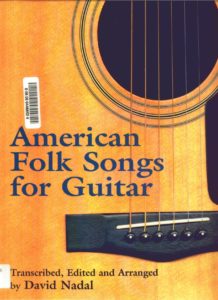 |
American Folk songs |
| American Folk Songs, My First Book of – Bergerac |
 |
|
| American Indian Melodies A. Farwell Op.11 (1901) |
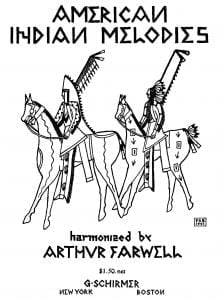 |
American Indian Melodies A. Farwell Op.11-min |
| American Pie (sheet music) |
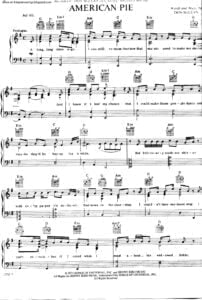 |
|
| American Popular Music (Book) by Larry Starr and Christopher Waterman |
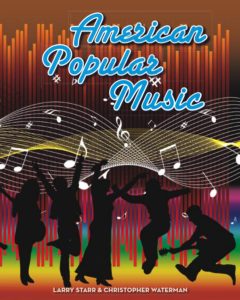 |
|
| Americana – Alegre, Magín (Guitarra) | Americana – Alegre, Magín (Guitarra) | |
| Amici Miei (Carlo Rustichelli) | ||
| Amor mio (Battisti) | ||
| Amore bello (Claudio Baglioni) | ||
| Amy Beach – Op.15 Four Sketches in Autumn |
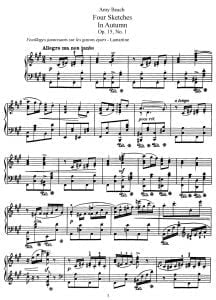 |
|
| Amy Grant – Breath Of Heaven | ||
| Amy MacDonald This Is The Life |
 |
AMY MACDONLAD |
| Amy Winehouse – Valerie |
 |
|
| Amy Winehouse – Valerie (sheet music) |
 |
|
| Amy Winehouse Amy Amy Amy |
 |
|
| Amy Winehouse Back To Black Songbook |
 |
Amy Winehouse Back To Black Songbook |
| Amy Winehouse Frank Songbook |
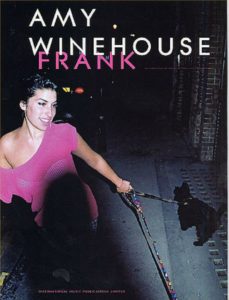 |
Amy Winehouse Frank |
| Amy Winehouse I Heard Love Is Blind |
 |
|
| Amy Winehouse Just Friends |
 |
|
| Amy Winehouse Rehab |
 |
|
| Amy Winehouse You Know Im No Good |
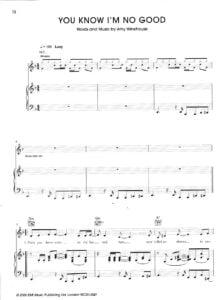 |
|
| An affair to remember (Harry Warren) | ||
| An American In Paris An George Gershwin (Concert Band)An American In Paris An George Gershwin (Concert Band) Arr. by Naohiro Iwai |
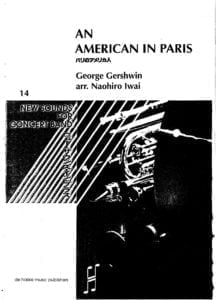 |
|
| An American Tail – The Marketplace – James Horner | ||
| An Introduction To Bach Studies (eBook) |
 |
|
| An Irish Blessing (Musescore File).mscz | ||
| An Irish Blessing (SATB) Choral | An Irish Blessing (SATB) | |
| Analisis musical claves para entender e interpretar la Música (M. y A. Lorenzo) Español |
 |
|
| Analysis Of Tonal Music An Schenkerian Approach Allen Cadwallader and David Gagné (Book) |
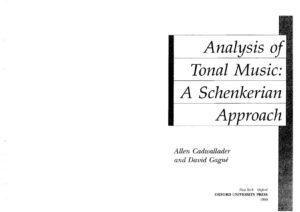 |
|
| Analyzing Bach Cantatas by Eric Chafe (eBook) |
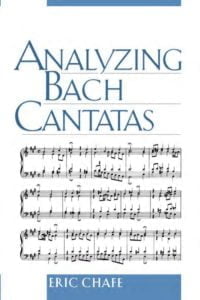 |
|
| Analyzing Schubert by Suzannah Clark (Cambridge Un. Press) (eBook) |
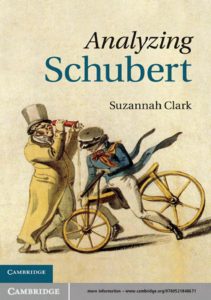 |
|
| Anastacia Not That Kind Songbook |
 |
Anastacia songbook |
| Anastasia Once Upon A December arr. by John Brimhall (Piano Solo 2 Versions Easy And Intermediate) |
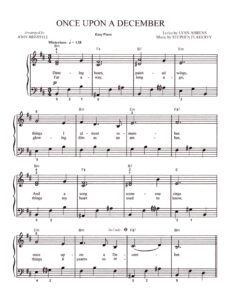 |
|
| Anastasia Sheet Music songbook Piano & vocal |
 |
Anastasia Sheet Music songbook Piano & vocal |
| Ancora ancora ancora (Mina) | ||
| Ancora qui (Django Unchained) Elisa – Ennio Morricone | ||
| And the Waltz goes on (Anthony Hopkins) | ||
| Andante (from String Quartet op. 22) P. I. Tchaikovsky | ||
| Anderson Freire – So Voce Piano |
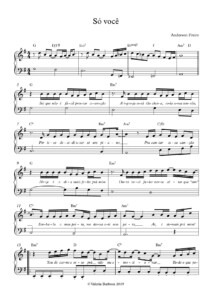 |
|
| Andras Schiff – Music Comes Out Of Silence Book |
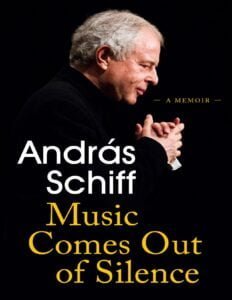 |
|
| Andre Gagnon – L’air Du Soir |
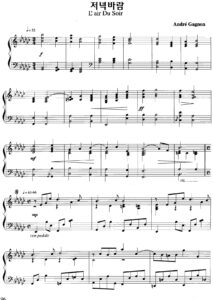 |
|
| Andre Gagnon – Le Reve De L’automne (sheet music Collection) |
 |
Andre Gagnon – Le Reve De L’automne (sheet music Collection) |
| Andre Gagnon – Les Jours Tranquilles | Andre Gagnon – Les Jours Tranquilles | |
| Andre Gagnon – Meguriai |
 |
|
| Andre Gagnon – Nelligan |
 |
|
| Andre Gagnon – Petite Nostalgie |
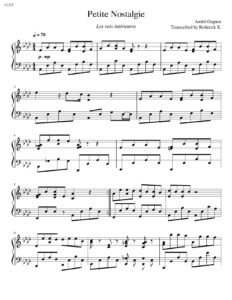 |
|
| Andre Gagnon – Reves D’Automne | Andre Gagnon – Reves D’Automne | |
| Andre Gagnon – The Very Best Of Andre Gagnon (Sheet Music Songbook) |
 |
Andre Gagnon – The Very Best Of Andre Gagnon (Sheet Music Songbook) |
| Andre Gagnon Ciel D’Hiver |
 |
|
| Andre Gagnon Entre Le Boeuf et l’Ane Gris Musique Traditionelle |
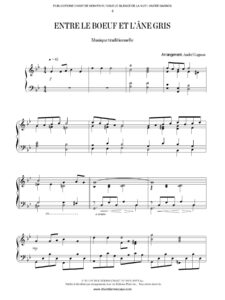 |
|
| André Gagnon L’air Du Soir |
 |
|
| Andre Gagnon Neiges |
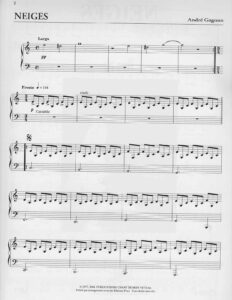 |
|
| André Gagnon Nelligan |
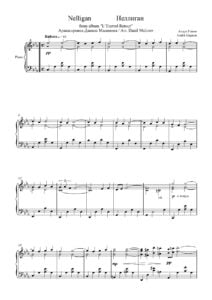 |
|
| André Gagnon Origami |
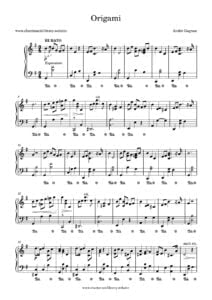 |
|
| André Gagnon Pensées Fugitives |
 |
|
| Andre Gagnon Pensées Fugitives |
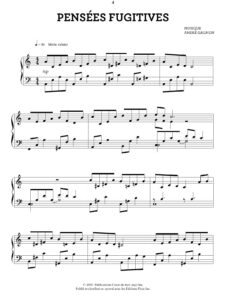 |
|
| André Gagnon Piano Solitude |
 |
Gagnon, André Piano Solitude |
| Andre Gagnon Prologue |
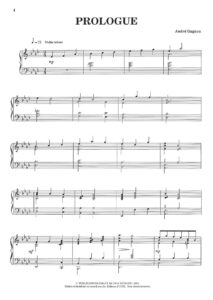 |
|
| André Gagnon Selection Speciale de chansons (partitions musicales) |
 |
André Gagnon Selection Speciale de chansons (partitions musicales) |
| André Gagnon Un Piano Sur La Mer (Piano Solo Partition Sheet Music) | Gagnon André Un Piano Sur La Mer (Piano Solo Partition Sheet Music) | |
| Andre Popp Paul Mauriat Love Is Blue Piano Solo Arr. |
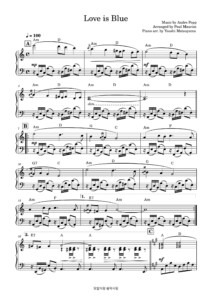 |
|
| André Previn – Play Like André Previn no. 1 |
 |
Andre Previn sheet music |
| Andre Previn – The Genius of (Piano Solos sheet music) |
 |
The genius of André Previn |
| Andre Rieu La Vie Est Belle (Songbook Collection As Performed By André Rieu) |
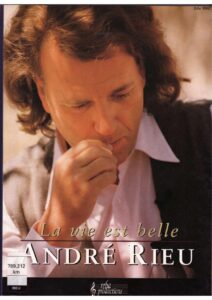 |
Andre Rieu La Vie Est Belle (Songbook Collection As Performed By André Rieu) |
| Andrea Bocceli – Time To Say Goodbye | ||
| Andrea Boccelli – Time To Say Goodbye |
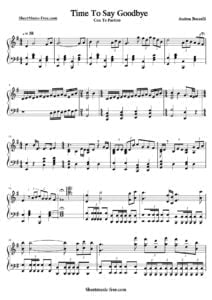 |
|
| Andrea Bocelli Romanza songbook (Guitar & Voice) |
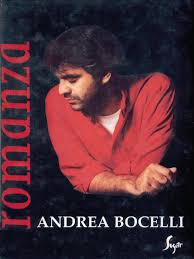 |
Andrea Bocelli Romanza songbook |
| Andrea Bocelli – Anthology (songbook) |
 |
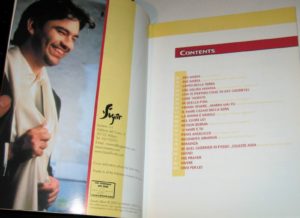 |
| Andrea Bocelli – Con te partiro (Time to say Goodbye) Piano Solo arr | Andrea Bocelli – Con te partiro (Time to say Goodbye) Piano Solo | |
| Andrea Bocelli – Con te partiro (Time to say Goodbye) Piano Solo.mscz | ||
| Andrea Bocelli – The Best Of Songbook |
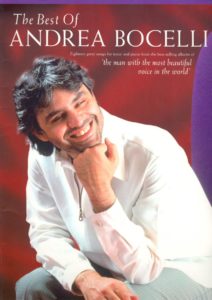 |
Andrea Bocelli best of |
| Andrea Bocelli Celine Dion The Prayer Easy Piano And Vocal By David Foster, Carole Bayer Sager, Alberto Testa And Tony Renis |
 |
|
| Andrea Bocelli Celine Dion – The Prayer – Easy Piano and Vocal by David Foster, Carole Bayer Sager, Alberto Testa and Tony Renis.mscz | ||
| Andrea Bocelli Cieli Di Toscana (Piano, guitar & Vocal) |
 |
Andrea Bocelli Cieli Di Toscana |
| Andrea Bocelli Sogno Songbook |
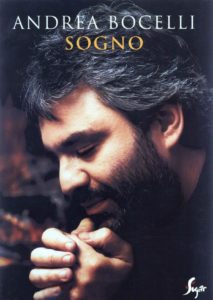 |
Andrea Bocelli sogno |
| Andrea Bocelli The Prayer |
 |
